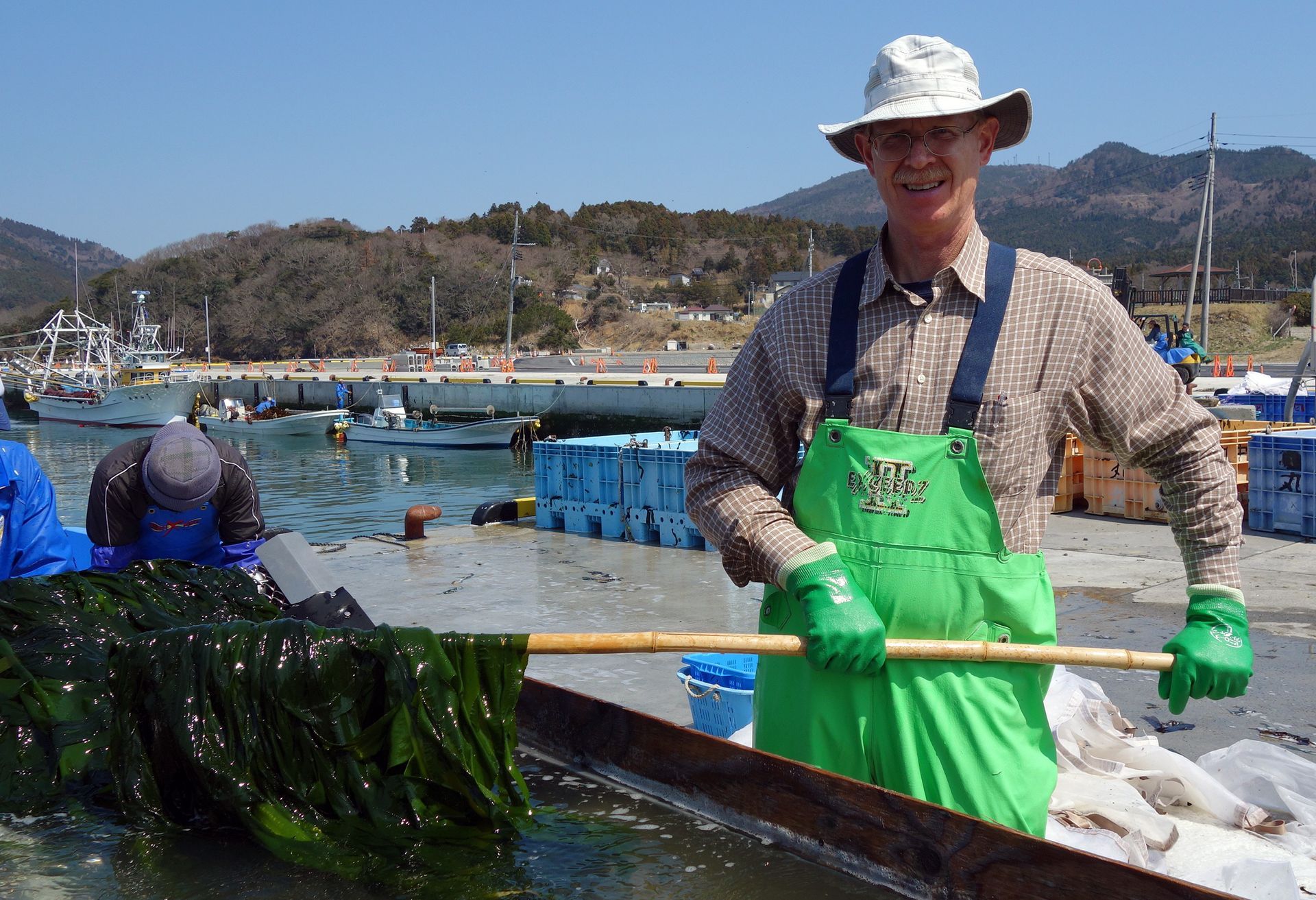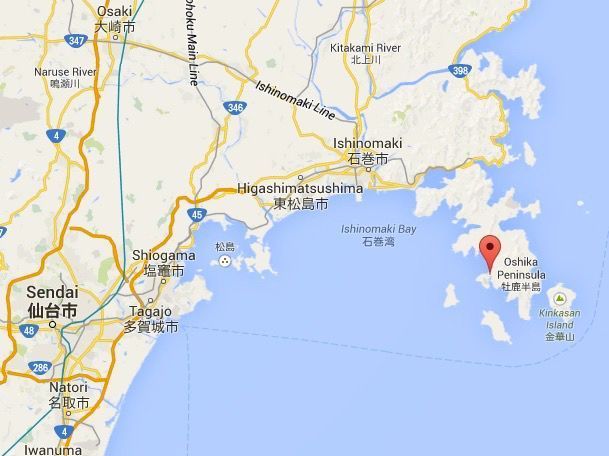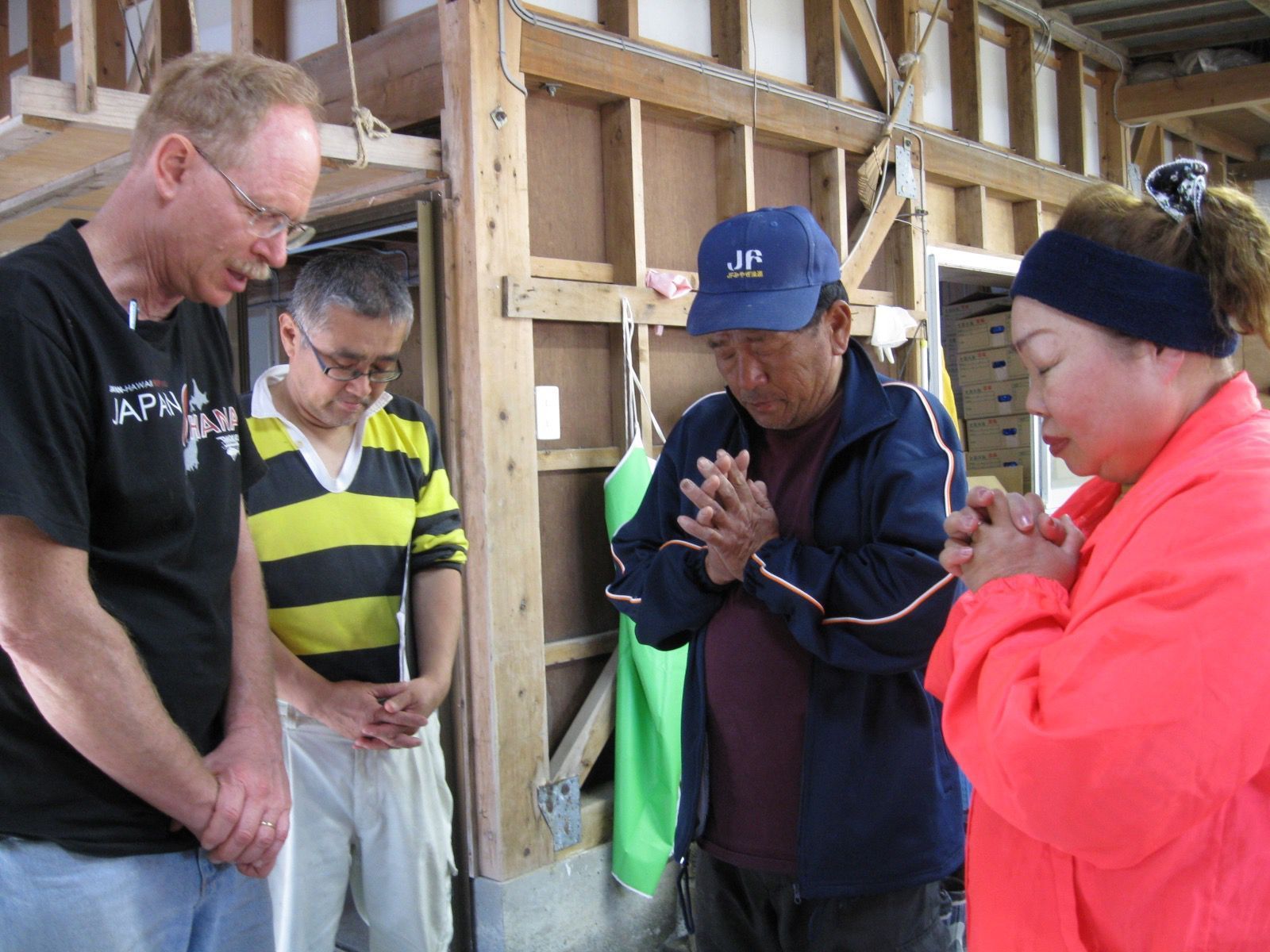
A tale of two farmers
Dave Barkman grew up helping harvest wheat in Kansas and Oklahoma.
Mr. Suda’s fields are full of wakame , an edible seaweed grown in Japan.
It took a tsunami to bring these two farmers together.
The March 2011 natural disaster devastated 600 miles of Japanese coast, wiping away fishing villages like Mr. Suda’s on the Oshika Peninsula.
Soon after the tsunami, SEND started contributing relief supplies. Recognizing that serving the devastated communities would be a long-term project, SEND missionaries Dave and Eileen Barkman moved into the disaster-affected area. They got connected with a Japanese pastor who has poured his life into reaching the residents of the peninsula’s fishing villages, and they began leading volunteer teams to help with cleanup and rebuilding efforts.
And that’s where they met the Sudas. The Suda family is the oldest in the village; their ancestors moved there 400 years ago. Mr. Suda farms two crops — oysters and wakame. Oysters take three years to grow, but wakame can be harvested after just 10 months. With the villagers destitute after the tsunami, their homes and tools swept away by the sea, showing the love of Jesus has meant helping sow and harvest the crops.

Dave Barkman blanches wakame on the harbor. Helping with the seaweed harvest is a tangible way to serve the fishing communities on the Oshika Peninsula.
Wakame grows off of a 10-meter rope that has been strung with wakame spore. After 10 months hung in the sea, it has grown from tiny spores on snippets of string to 2- to 4-meter-long plants. The rope with the plants is pulled onto the deck of a boat. On the pier, the stem and leaves are chopped off from the root and put through a hot water bath. Then they are bagged, brined and pressed. Teams of women sort through the leaves, trimming out any bad bits. Then the leaves are boxed and sent to wholesalers who pay $250 for 15 kilograms. Japanese families eat wakame in soups and salads.
“This really is farming,” Dave said. “But compared to what I experienced in my younger days, it’s totally different.”

People who live on the remote peninsula can travel more than an hour to the nearest grocery store.
It’s also making a difference. By the time the Barkmans met her, Mrs. Suda had already made a faith decision for Jesus, but Mr. Suda was rather grouchy.
“Everyone would kind of act like they were busy when they saw him coming,” Dave said. “But he took a liking to me. I was able to sit down and talk with him. He speaks a very rough fisherman’s language. But for some reason, we could still communicate.
“The work reminded me so much of days doing farm work in Kansas. Even though the setting and crop were so totally different, I think it was on that level that I could connect with Mr. Suda. We share the same appreciation for nature and work.
“One day, I was trying to explain to a group of the locals why we’re in Japan, what a missionary does, that we share the love of Christ because of what he’s done for us, that he’s promised us true life.
“Mr. Suda suddenly interjected: ‘But what does the Bible say about marriage?’ That was a sore point, a felt need. The theological stuff didn’t connect with him. He wanted to know the practical. He wanted to know about marriage.”

Praying with the Sudas.
Now Mr. Suda, too, has begun to believe in Jesus. He and his wife are learning what it means to follow him.
Mr. Suda’s faith story is just one of many on the peninsula. Pastor Kishinami has started numerous evening Bible studies in temporary homes and work sheds. A skilled story-teller, he shares the gospel and its practical implications for the lives of the fishermen’s families. He’s seen about 90 people take faith steps toward Jesus.
SEND now has a fulltime presence on the peninsula, too. SEND missionaries Mitsuo and Akiko Fujishima, who grew up in Japan and know the local dialect, recently moved there. They spend their days visiting people in temporary housing, hosting Bible studies, doing follow-up work, and helping with oyster and wakame processing. They report that the witness of the Christians who have come to work in the villages has helped a Korean lady (married to one of the fishermen) develop into a passionate Christian who just led her elderly Japanese mother-in-law to the Lord!
“It is difficult for new believers to deal with the deeply rooted traditions of ancestor worship and other idolatrous practices,” Dave said. “However, we are starting to see the power of the gospel to change lives, marriages and community relationships. Christ is building his church in the fishing villages of Oshika Peninsula.”
Additional Posts




